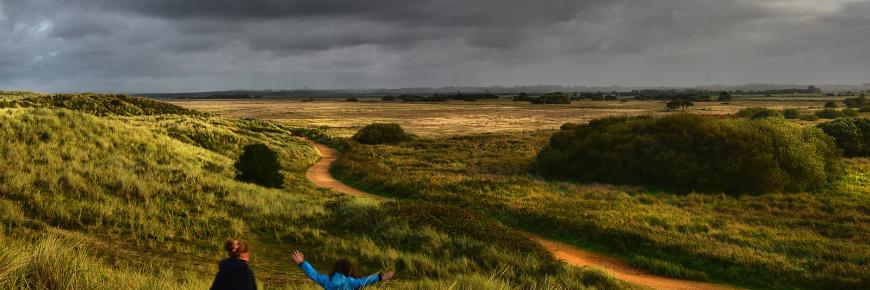Impacts of Mussel Farming Posts
Mussel farming, a new method for dune nourishment?
Wooden posts (bouchots) are driven into the shore in lines to farm mussels. They are widely used in France but not in other EU Member States. Casual observations suggest the posts trap sand, extending the beach, thus providing dune nourishment and reducing erosion. It may therefore be possible to employ these posts for two objectives: mussel farming as well as coastal dune resilience. However, before this ENDURE pilot, these potential benefits had never been researched.
Pre-existing posts at Sangatte and Authie have been studied to document to dunes. We have tracked and measured sedimentation and reduced erosion caused by these posts. This is an exciting new ecosystem-based tool offering both environmental and economic . EU aquaculture – the breeding, raising and harvesting of fish and shellfish, also called fish farming – is an economically important industry. France is the second largest mussel producer in the EU. Collaboration has helped to share knowledge across EU Member States, benefiting coastal communities and supporting sustainable growth in the EU marine and fishing sector.
This activity was led by CEREMA with close collaboration with CPIE Val d'Authie and their local observer partners.
The following is a presentation given by Nicolas Huybrechts of Cerema to the ENDURE Project Closing Conference in summer 2021, highlighting the pilot results.
https://www.youtube.com/watch?v=tXM8BNwUpIo
Other Supporting documents
- Satellite-Derived Topography and Morphological Evolution around Authie Macrotidal Estuary, France (Journal)
A summary of all the projects pilots and tools can be found in the Best Practice Guide.
Tangible Benefit
Tangible benefit: material benefit that can be measured. In this context, this refers to measurable dune nourishment in the form of sand trapped by the mussel farms.
Sustainability
Sustainability: this term is often used to describe measures that are environmentally durable in the long term. Economic sustainability however refers to something being financially affordable and durable in the long term.

